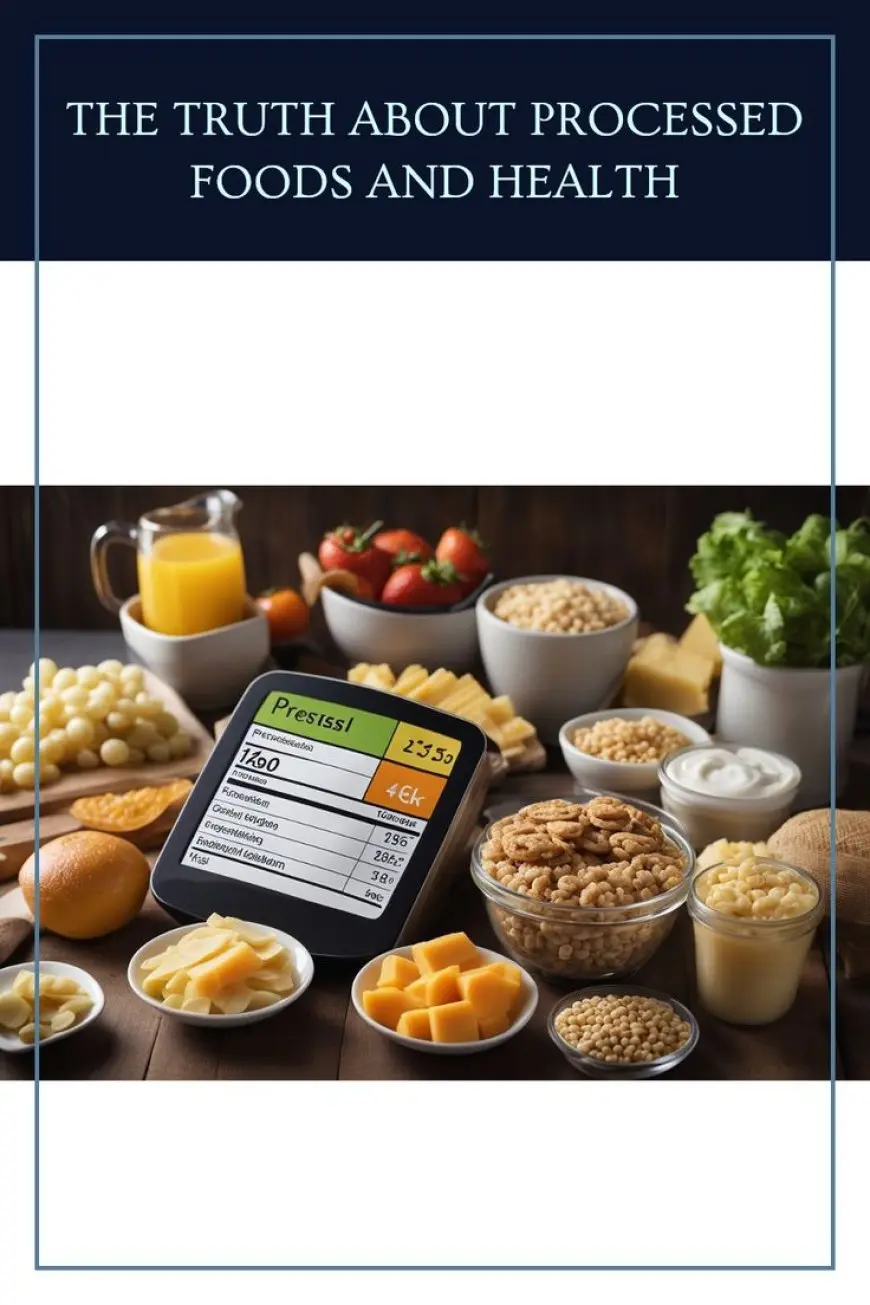The Truth About Processed Foods
The Truth About Processed Foods

Processed foods are a significant part of modern diets, often sparking debate about their impact on health. Understanding the truth about processed foods requires distinguishing between different types of processing, their benefits, and potential downsides.
What Are Processed Foods?
Processed foods refer to any food that has been altered during preparation, including cleaning, chopping, cooking, freezing, packaging, or adding ingredients. Not all processing is harmful. For example, pasteurizing milk or freezing vegetables can preserve nutrients and extend shelf life. However, ultra-processed foods—those made with additives, artificial flavors, preservatives, and refined ingredients—are often less nutritious.
Types of Processed Foods
- Minimally Processed Foods: Foods like washed and bagged spinach or pre-cut fruits are processed for convenience but retain their nutritional value.
- Moderately Processed Foods: Canned vegetables, frozen fish, or whole-grain bread often contain added ingredients but can still be part of a healthy diet.
- Ultra-Processed Foods: Items like chips, sugary cereals, sodas, and packaged snacks often contain high levels of sugar, salt, unhealthy fats, and artificial additives.
Benefits of Processed Foods
Convenience: Processing can make food preparation faster and more accessible, saving time for busy households.
Enhanced Food Safety: Techniques like pasteurization and vacuum sealing prevent foodborne illnesses and spoilage.
Nutrient Fortification: Many processed foods, such as cereals and milk, are fortified with vitamins and minerals, addressing common nutrient deficiencies.
Drawbacks of Processed Foods
High in Added Sugars and Fats: Ultra-processed foods often contain unhealthy levels of added sugars, trans fats, and refined carbohydrates, contributing to obesity, heart disease, and diabetes.
Excess Sodium: Many processed foods, such as instant noodles or deli meats, are high in sodium, which can raise blood pressure and increase the risk of heart disease.
Low Nutrient Density: Heavily processed items often lack essential nutrients and fiber, leading to an unbalanced diet.
Additives and Preservatives: While generally considered safe, some additives may cause adverse reactions or long-term health concerns for sensitive individuals.
How to Make Healthier Choices
- Read Labels Carefully: Look for foods with fewer ingredients and avoid those with excessive added sugars, artificial colors, or preservatives.
- Choose Whole Foods: Incorporate more whole, unprocessed items like fresh fruits, vegetables, whole grains, and lean proteins into your meals.
- Opt for Moderately Processed Options: Foods like canned beans, frozen vegetables, or unsweetened yogurt are convenient and nutritious alternatives.
- Limit Ultra-Processed Foods: Treat sugary snacks, sodas, and packaged meals as occasional indulgences rather than dietary staples.
- Cook at Home: Preparing meals from scratch allows you to control ingredients and avoid unnecessary additives.
Final Thoughts
Processed foods are not inherently harmful, but the type and frequency of consumption matter. Focusing on minimally and moderately processed foods while reducing ultra-processed ones can support a balanced, nutritious diet.







